The Syrian crisis is stepping into its seventh year, with political and military efforts being exerted, but with no clear vision so far on a political solution.
Political solution still beyond reach
For the past six years, countless meetings on Syria, whether in Geneva, or the latest in Astana, have failed to draw a concrete roadmap to end the conflict. Although each party claims that a political solution is the only way out of the intricate impasse, each party continues to exchange blame for the lack of progress.
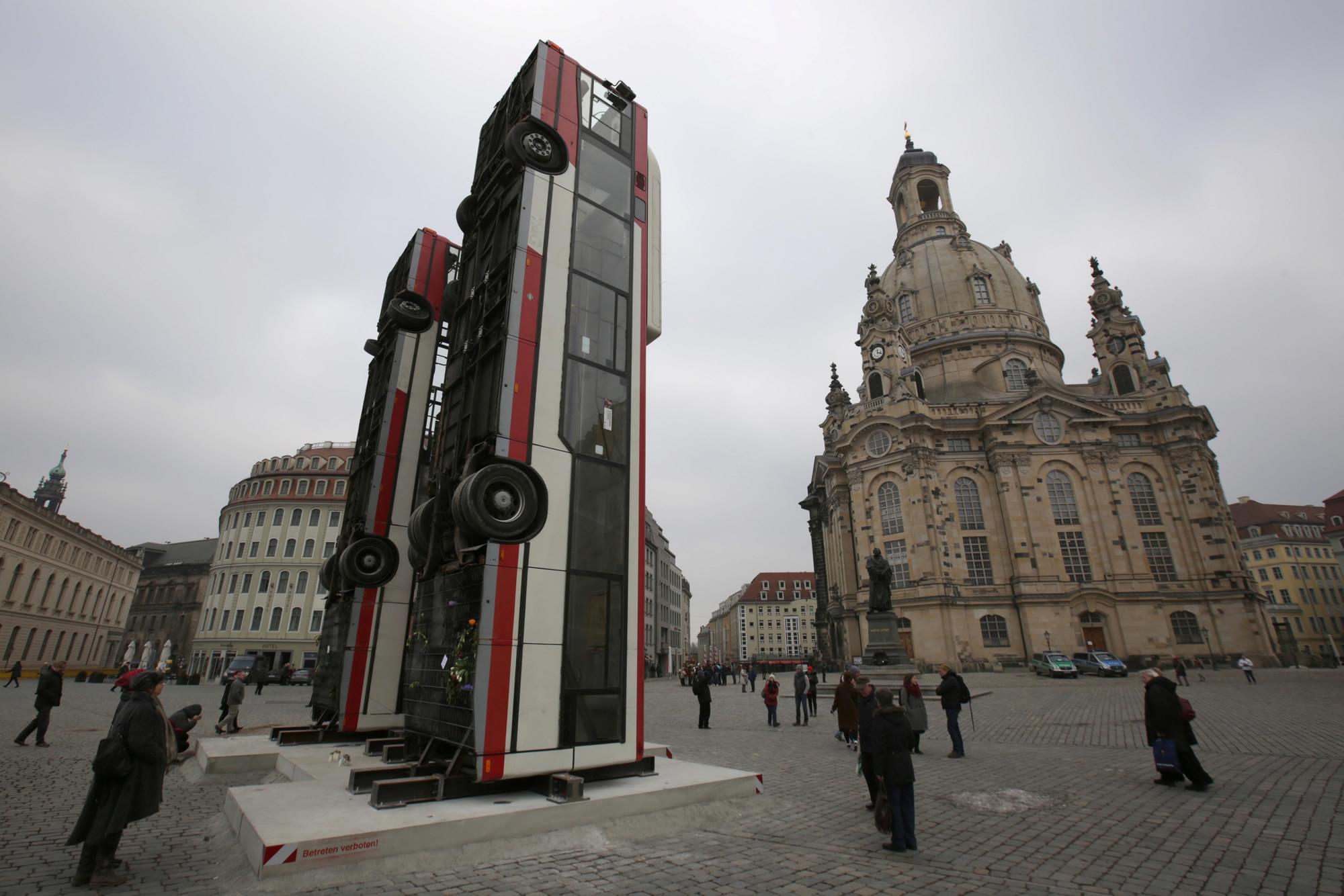
An art installation "Monument" in Dresden, Germany by Syrian artist Manaf Halbouni to call for the international community's attention to Syrian civilians./CFP Photo
The Syrian government has always accused the political opposition of being puppets in the hands of regional and international backers to oust President Bashar al-Assad's government and undermine the unity and sovereignty of Syria, while the opposition points an accusatory finger at the government. According to Xinhua’s interview with Hassan Abdul-Azim, head of the Damascus-based National Coordination Body (NCB), Assad's government has long evaded establishing a transitional governing body, as agreed upon in previous talks.
According to analysts, the thorniest point throughout talks in the Syrian conflict remains at the different priorities of each party. The recent talks held in Geneva last month clarified that anti-terrorism efforts should be prioritized ahead of talks of transitional periods, whereas the opposition, mainly the HNC, insisted that intra-Syrian talks should prioritize the transition.
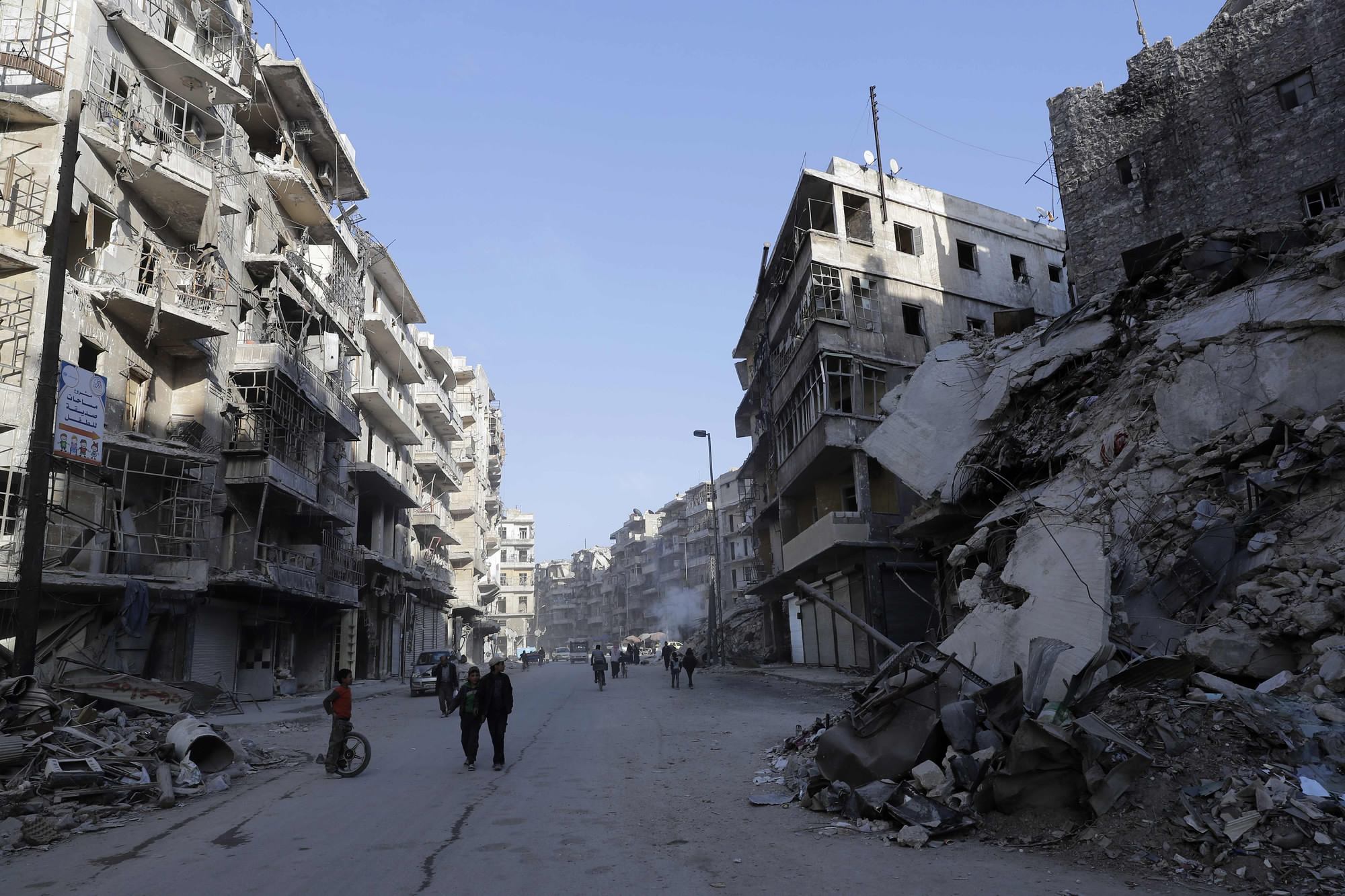
People walking in the northern Syrian city of Aleppo on March 9, which was recaptured by government forces last December./ CFP Photo
Even President Assad recently clarified that point by saying on Monday that Syria's priority is fighting terrorism, adding that talks about politics at this time are "a luxury."
Besides that, the existing divergence also includes how to separate rebels from terrorist-designated ones, which is the main topic of the current round of Astana talks which started on Monday. However, the government regards almost all rebel groups as "terrorists," while the United Nations (UN) and other world powers have only branded two groups as terrorists, namely the Islamic State (IS) group and the al-Qaida-linked Nusra Front.
Ongoing military activity
The military situation in Syria is still gaining momentum, most notably against the terrorist-designated groups. The presence of international powers, particularly those involved in the Syrian conflict, has recently become more obvious.
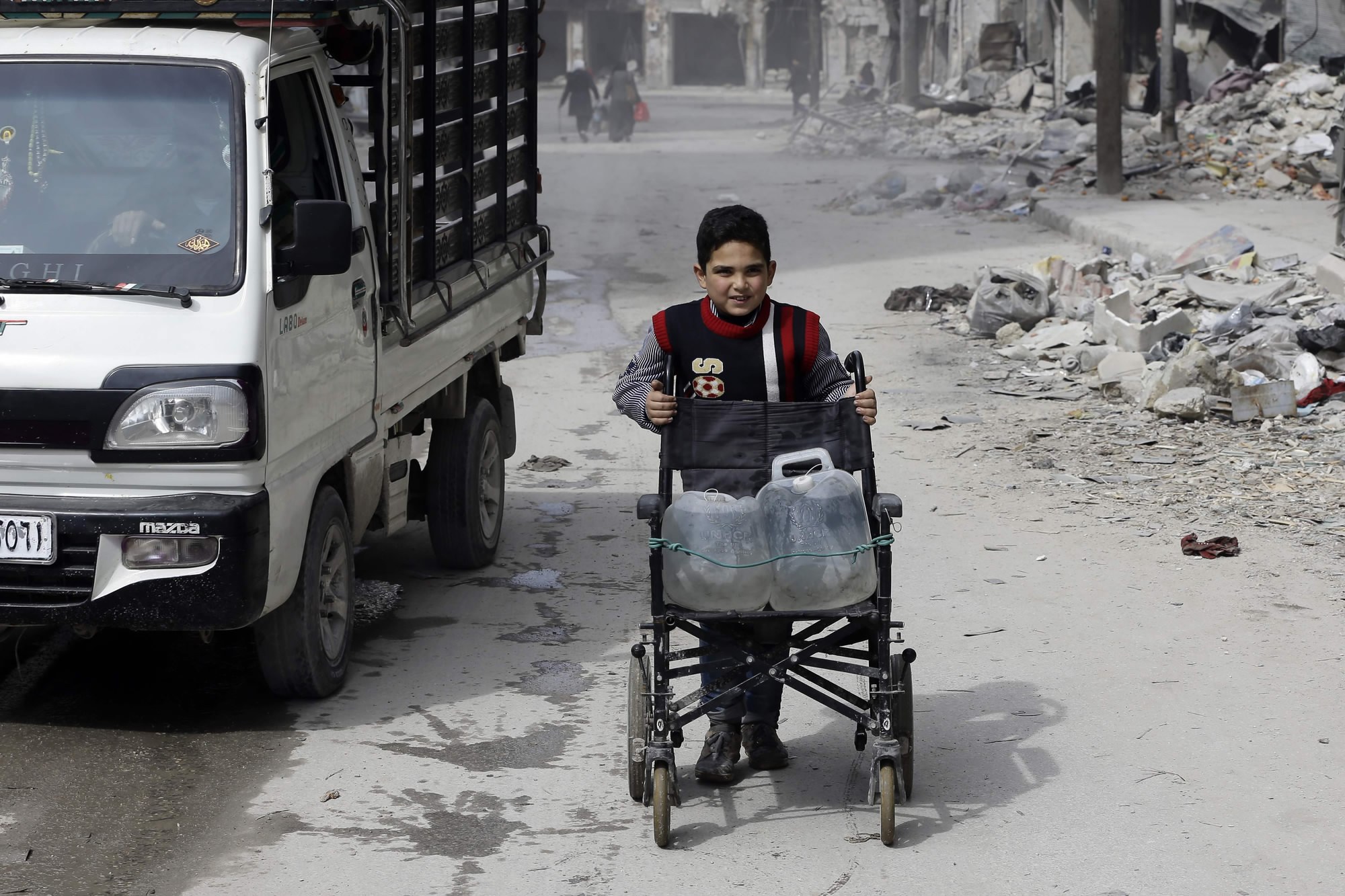
A Syrian child pushes a wheelchair carrying water bottles in the Shaar neighborhood in the northern city of Aleppo on March 9, 2017. /CFP Photo
US forces have deployed ground troops under President Donald Trump's new administration, in the largely-controlled Kurdish areas in northern Syria, in preparation for the battle against ISIL's de facto capital of Raqqa in northern Syria.
Meanwhile, Turkish forces have entered Syria to assist the rebels it is backing under a military campaign called the "Euphrates Shield," whose stated goal is to drive IS from the northern Syrian areas. The Turkish-backed campaign successfully dislodged IS from the key city of al-Bab and other areas on the Syrian-Turkish borders.
Russian support was crucial to the Syrian army in driving out IS from the eastern countryside of the Aleppo Province in northern Syria.
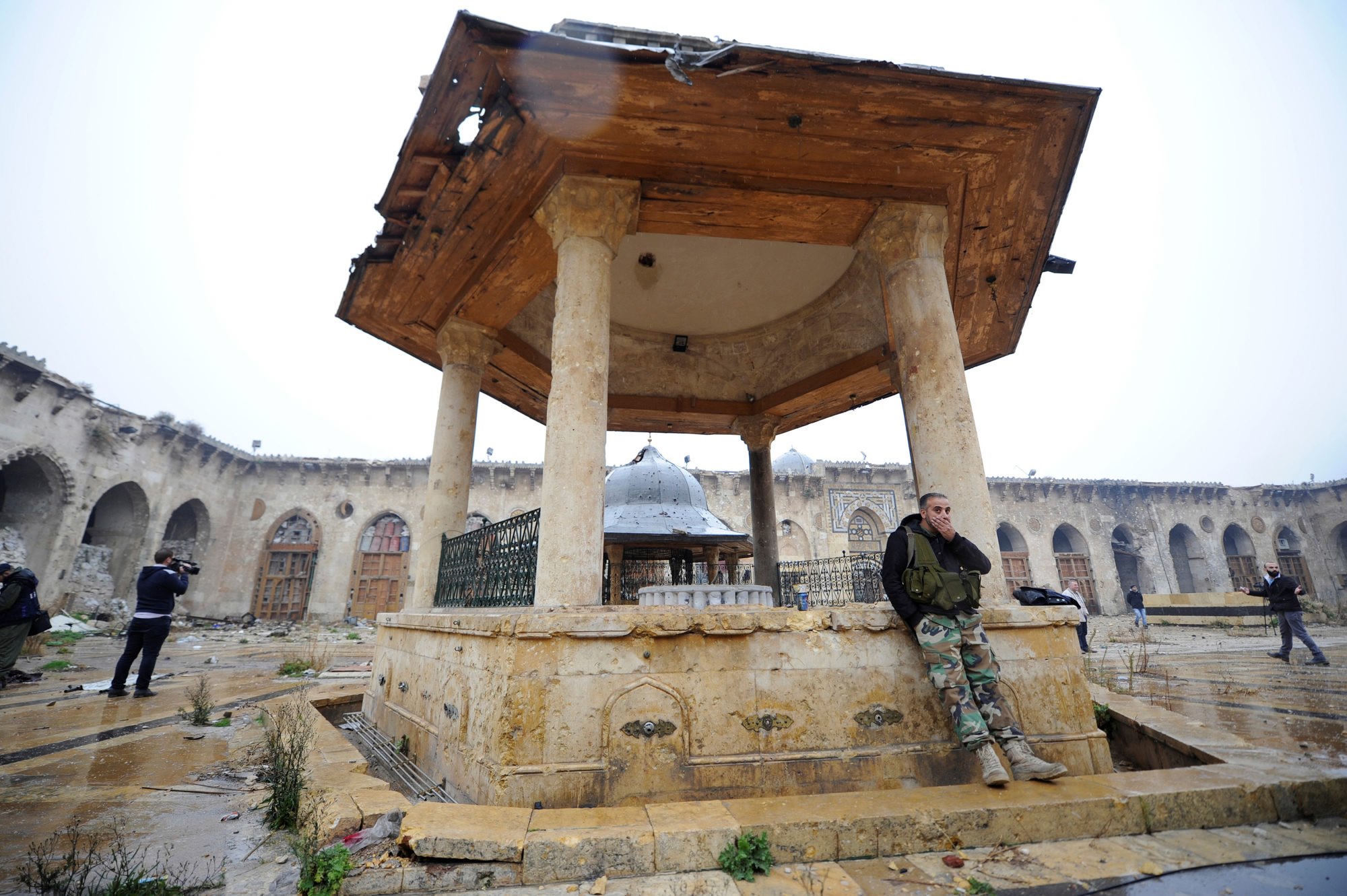
A man stands inside the Umayyad mosque of Aleppo. The ancient architecture was destroyed during battle in 2013./CFP Photo
All in all, the world's superpowers amass forces to drive out IS from Syria in order to secure their interests in Syria, analysts say.
However, President Assad recently said during an interview that the current situation in Syria is better than it was in 2012 and 2013. With the army controlling major Syrian cities, mainly Aleppo, which government forces recaptured late last year after driving out the rebels.
Is there any hope?
Despite the lack of any tangible progress during the meetings on Syria, analysts in Damascus said hope still exists.
Hmaidi Abdullah, a Syrian political analyst, told Xinhua that the Syrian crisis is currently closer than ever to a political solution, stressing that the military's solution is presently directed against terrorist groups such as IS and Nusra.
He said that the current regional and international military action in Syria, including Aleppo's countryside and the city of Raqqa, is what rendered a political solution to the crisis as the likeliest choice. "As the alternative would be a war between Turkish forces, allied militants, the US-backed Kurdish groups, Russian forces and allied Syrian military forces. A war in no one's interest."
He added that the way out of the impasse in the Syrian crisis is through implementing Resolution 2254, the ultimate formula for a solution.
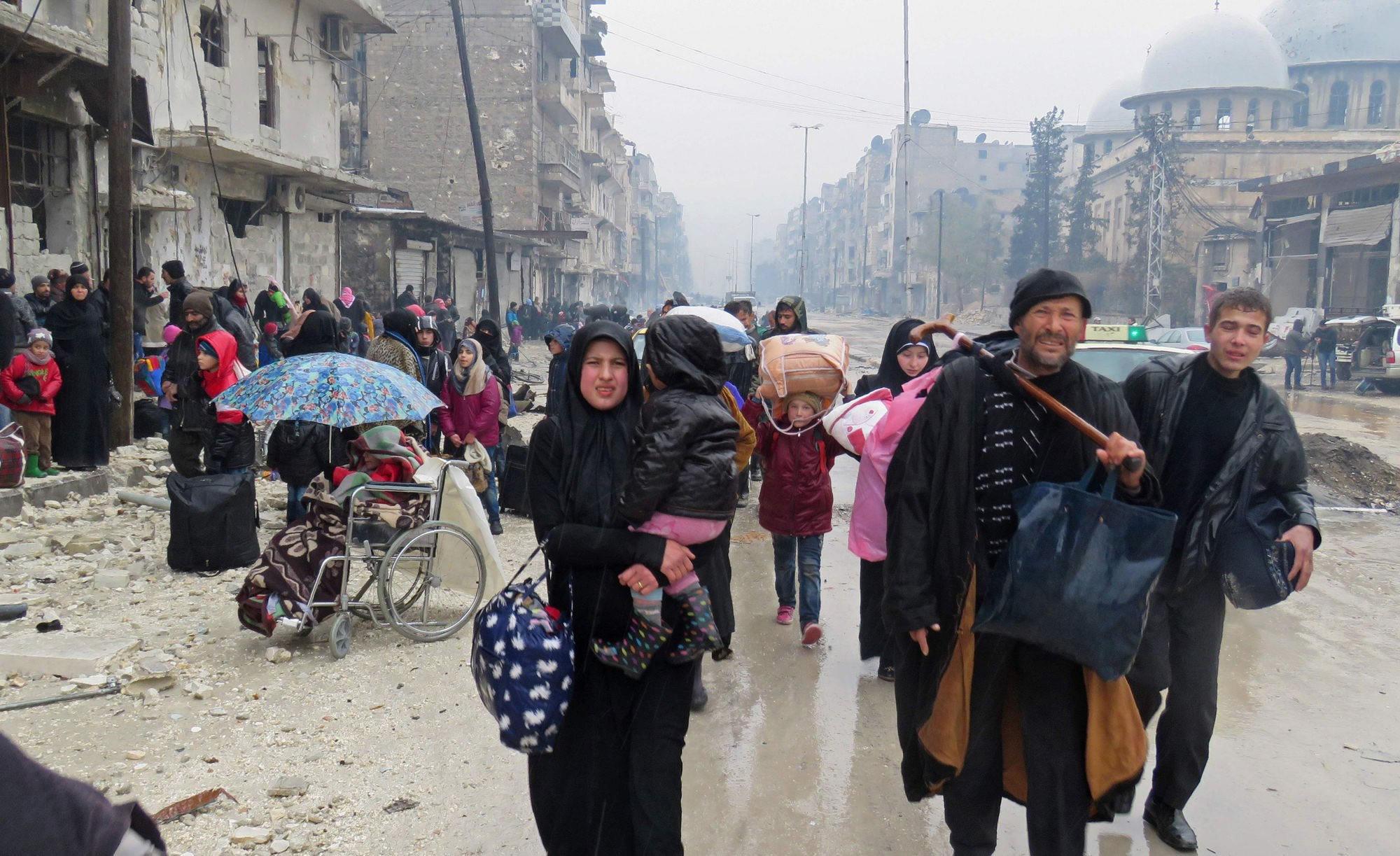
Syrian residents fleeing violence in Bustan al-Qasr neighborhood, arrive in Aleppo's Fardos on Dec 13, 2016. /CFP Photo
The resolution was unanimously adopted on December 18, 2015, calling for a ceasefire and a political solution in Syria, which is also the foundation for the Astana negotiations convened by Turkey, Russia, and Iran in Astana, Kazakhstan.
The UN refugee agency (UNHCR) said in a report marking the sixth anniversary of the Syrian crisis that "while there is some hope for peace, the suffering of millions of Syrians continues unabated. The Syrian War is a collective failure."
The UNHCR said that 13.5 million Syrians need humanitarian aid, and 6.3 million are internally displaced, while hundreds of thousands have made perilous sea voyages seeking sanctuary elsewhere and almost 3 million Syrians under five have grown up during war time, with 4.9 million, mostly women and children, being refugees in neighboring states.
(With input from Xinhua)









